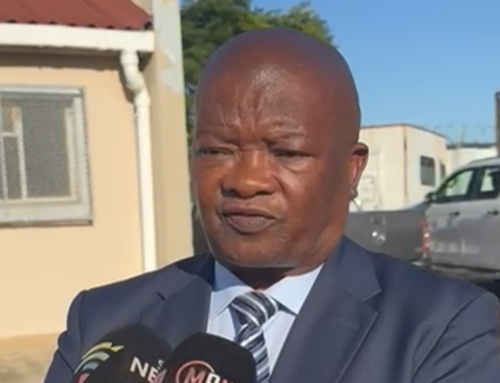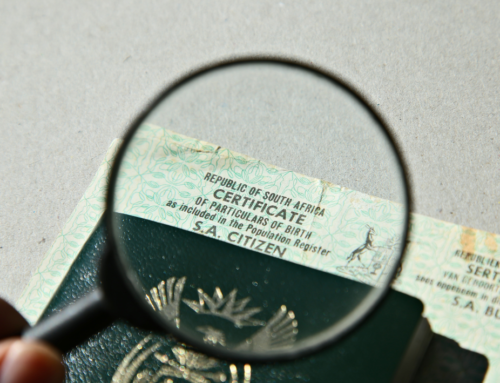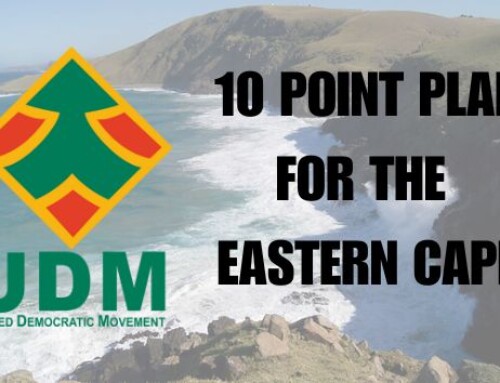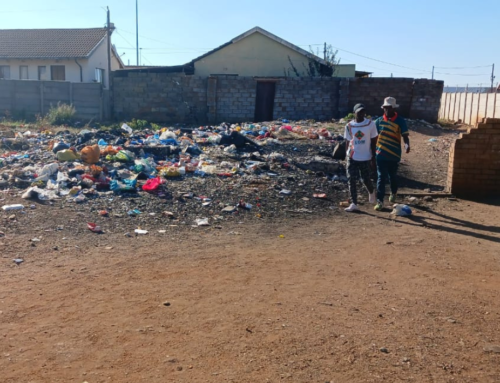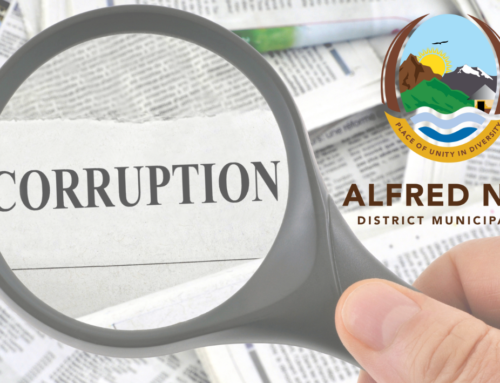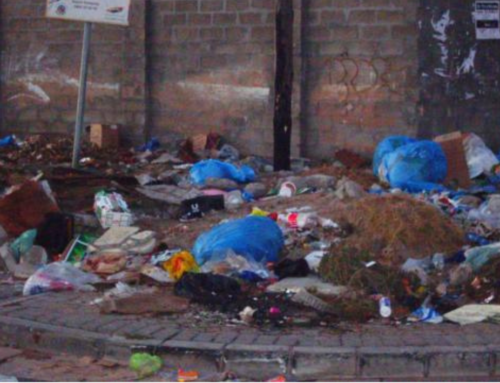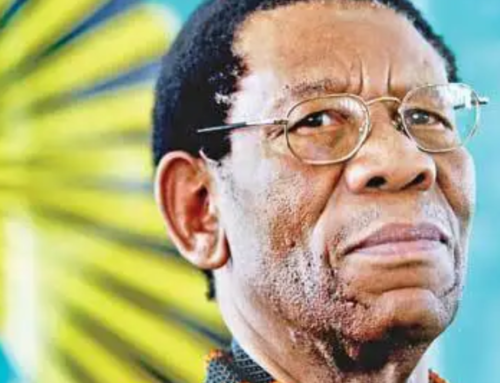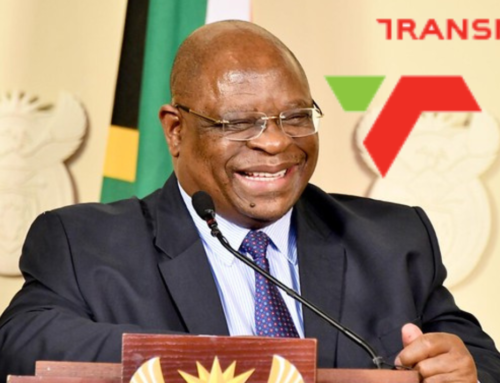

• Provincial UDM Leaderships from across South Africa
• Public Representatives of the Party
• UDM members from across the country
• Traditional and faith-based leaders
• Ladies and gentlemen
1. Welcome
We welcome you to the 26th Anniversary of the United Democratic Movement’s (UDM) founding.
Thank you for making the effort to be here today at this auspicious event.
We are also gathered here today to celebrate heritage, not only that of the UDM, but tomorrow is Heritage Day in this beautiful land of ours.
The guests we have today include religious and traditional leaders, women, young people and captains of industry and business. Welcome to you all.
On 27 September 1997, like-minded South Africans came together at what was then known as the World Trade Centre, in Kempton Park, to form the UDM after months of consultation as the National Consultative Forum and the New Movement Process.
The UDM reached the milestone of having its 26th birthday through perseverance. God knows we did not, and still do not, have the resources that other parties have.
Some parties have direct and indirect access to state resources, and others are beholden to donors, in one case, to a Western Cape property mogul who gave over R20 million to one party, but who also does business with government.
If not for the legal requirement for parties to declare their party funding, we would not have known this fact.
At least the electorate can be assured the UDM is in no one’s pocket.
The UDM’s other challenge had been that we were stripped of human and financial resources during a critical period, with the dastardly floor-crossing legislation.
Also due to political intolerance and pure intimidation tactics, we tragically lost members in killings in KwaZulu-Natal and the Western Cape.
This Anniversary takes place whilst South Africa is a country in crisis.
The main contenders are joblessness, crime, lawlessness and violence, economy, loadshedding, water, poverty, incompetence and corruption as well as the influx of people from all-over seeking refuge and resources from the state.
Because of incompetence, the elderly are left confused by contradicting explanations as to why their pensions are late, being paid only a portion of it and an inability to access it altogether.
We just spent R1 billion on the tip of one of these icebergs; corruption. Yet the Zondo Commission’s work seems to be for nothing, as its Report is gathering dust in Parliament. We are not surprised that this is happening, because the ruling party has directly been named in this Report.
One thing is certain, those fingered by the Zondo Commission cannot be charged to fix matters.
Scandals like Bosasa, Chancellor House and the Guptas have come to light. Let us not fool ourselves, the ruling party helped themselves to the kitty to sustain itself.
Everyone should know by now; one-party dominance breeds corruption and the people of South Africa, who have been affected by it, are tired.
There is only one solution, the 2024 National and Provincial Elections are the ideal opportunity to get rid of the real State Capturers.
A new dispensation which would appoint people based on skill, qualifications and merit is needed.
As we speak, because of employment discrimination we see medical doctors protesting in the streets that they are not employed, yet our hospitals are short staffed.
Other experts and professionals are being snatched up from our shores, and the brain-drain is a daily occurrence.
Lawlessness and crime continue unabated. What does it say about a government that cannot protect its citizens.
The current government has failed to invest in people when it comes to economic growth. Areas such as manufacturing, agriculture and other areas have not been developed.
People who had owned the economy before 1994 had delisted their enterprises and/or moved their head-offices to other parts of the world. Properties are being bought by outsiders.
Looks like South Africans who fought for liberation, thinking that there would be something for them, were sold an empty shell.
Even in the townships where the Maponyas, Nkonyenis, Motsoenyanes and many others thrived at a time, have been taken over by Pakistanis and other nationals.
This is a neo-colonialism of a special kind and there are rumours that these people are not even paying taxes. In addition, no wealth is generated locally because the people spend their government grants on inferior quality goods at these outside vendors.
The UDM has been calling for an Economic Indaba which would allow the country to, for the first time, be in position to come up with an economic policy that would make clear-cut changes to empower the majority of its citizens.
Education policies have been chopped-and-changed over the years. So much so that South Africa is producing unemployable graduates or those who cannot start their own businesses or create jobs.
This in turn creates a frustrated youth who turn to drugs and crime.
What the voters need to do is to get rid of the real State Capturers, so that South Africa can have a new dispensation after 2024.
A new dispensation that would address the collapse of the State-Owned Enterprises.
A new dispensation that will fix the criminal justice system.
A new dispensation that will deal with collapsing infrastructure.
A new dispensation which would engage with the SADC community to close ranks, to make sure they are not targeted as a dumping-zone that affect their economies and deal with crime in general.
A new dispensation that will ensure that Chapter Nine institutions and the National Prosecuting Authority have appointments made based on merit, qualifications and experience.
A new dispensation with a foreign policy that fosters good international relationships, with a firm view on our national interests.
2. UDM victories
Ladies and gentlemen, the UDM can celebrate the fact that for 26 years it has been consistent in its stance of batting on the wicket of the ethics of good governance.
We started banging the drum of anti-corruption back in the day when we were vilified and called with all sorts of labels and names.
The UDM has been vindicated over the years and we have had several great successes along the way, for example:
• The UDM was instrumental in agitating for the abolishment of the immoral floor-crossing legislation, which is no longer on our statute books.
• We succeeded in having the Independent Electoral Commission’s former (IEC) Chief Electoral Officer resign because of an irregular lease agreement she had arranged.
• We were part of the legal action taken to preserve and protect the former Public Protector Thuli Madonsela’s report on state capture.
• The UDM exposed corruption at the Public Investment Corporation (PIC) amounting to billions of rands. This directly led to the establishment of the Mpati Commission of Inquiry, which has vindicated us.
One thing is certain that the pensions of the government employees is under severe threat because the PIC was seemingly established as a mere piggy bank for some. Both unlisted and listed companies are not servicing their loans.
• Since the time of the now defunct Idasa, as early as 1999, we saw that some parties were using state resources to line party coffers, and the UDM has campaigned for transparent and equitable party funding.
This was blocked by the two main players for years, yet we were recently proven right when the legislation governing party funding was changed to level the playing field a little bit.
• We were part of the drive that led to the establishment of the Zondo Commission, which has vindicated the UDM in our position that the ruling party has had its hands in the cookie jar for years.
• The UDM has led the initiative of opposition parties working together to show a united front on various issues, including shedding a light on the ruling party’s looting spree. We have managed to apply some brakes.
• The UDM has been advocating for changes to the Electoral Act for many years, and a step in the right direction was recently forced by the Constitutional Court, which changes the Act to allow for independent candidates to stand in national and provincial elections. But it has not gone far enough.
If we are serious about improving accountability, we must have an electoral system that introduces a mixed proportional and constituency-based system, that also allows the people to elect their own president directly.
• In 2021, South African Federation of Trade Unions (SAFTU) General Secretary, Mr Zwelizima Vavi, and I successfully brokered a peace accord between the Congress for Democratic Taxi Association (CODETA) and the Cape Amalgamated Taxi Association (CATA) when the conflict saw many deaths and injuries.
• UDM Deputy President Nqabayomzi Kwankwa’s African Parliamentarians Association for Human Rights (AfriPAHR) have been doing sterling work across the globe.
• South African Defence Force and SATBVC military veterans brought to our attention, that the Minister of Defence and Military Veterans was attempting to cause division amongst veterans by publishing regulations seeking to regulate their pension benefits in a contentious manner.
After I had raised this matter in this year’s SONA debate, President Ramaphosa had instructed that the matter be handled by his Deputy President.
I am happy to report that the Minister had in the meantime, through the pressure exerted by the UDM, withdrawn the contentious regulations and that all military veterans will now be treated equally.
• We have moved along nicely with the group of resigned Eastern Cape teachers who are seeking re-employment, who had approached the UDM for assistance.
I am happy to report that a teachers’ representative committee had met with the Eastern Cape MEC for Education, Fundile Gade, and his officials.
We are still waiting for the outcome of the agreements that were entered into.
• After we took up the SATBVC government pensioners’ complaints with President Ramaphosa at the SONA debate in February 2023, he had referred the matter to Minister of Finance Enoch Godongwana.
What happened in these cases is that people who had started their employment with the SATBVC countries in the 1970s or 80s had their pensions transferred to the Government Employees Pension Fund (GEPF), from asset management companies like Alexander Forbes, Sanlam, etc., in terms of the Act of 1996.
What shocks some retirees is that once they take retirement, their pensions are calculated since 1996 instead of their original employment date.
Some progress had been made, in that, a Pensioners Representatives’ Committee was formed, and their report submitted to the Minister.
We are however at an impasse, almost seven months into the process where the Minister seems to be unable to carry out the President’s instruction.
In what world does a minister ignore the instruction of his or her president? In general people are complaining that heads of departments and ministers are ignoring their letters, service providers are not paid on time; all signs of a dysfunctional civil service.
We have however continued to engage with pensioners to hear their side of the story and we have since engaged the services of a legal team to take the matter to court. We did this, especially after we reported the minister’s intransigence to the President, one gets the impression that the President was just doing a PR exercise during the SONA response to the pensioners’ concerns.
• The UDM and 17 other concerned South African parties and individuals have joined hands to take Eskom, Nersa and government to court to establish exactly what the reasons are behind loadshedding.
We struck gold when the North Gauteng High Court in Pretoria ruled that all hospitals, clinics, schools and police stations should be spared from electricity disruptions.
• The UDM had exposed serious alleged wastage of money at the National Student Financial Aid Scheme (NSFAS), this whilst students are not getting paid in time and others are denied the opportunity to access much needed funds at all.
NSFAS recently moved to another building using a turn-key solution, from a building where the rent had been R500,000 per month, to one where the rent now is a whopping R2 million per month.
• The UDM has led the process of talks between opposition parties. We will stick to the agenda of closing opposition ranks where we have a common position.
• We have taken up the cause of the sub-headmen who form an integral link between the people who live in the rural villages and the municipal councillors, headmen and Amakhosi. They are performing the work of councillors who are absent from the rural communities.
They would like to be assisted, to do their work, with a monthly stipend and a cellular phone allowance. The UDM have escalated this issue to the office of the Minister and MEC of Cooperative Governance and Traditional Affairs and the Premier of the Eastern Cape.
• Regarding our other unceasing constituency work, we have been advocating for correctional services employees, police reserves and successfully made some noise regarding the SETAs, as well as a bevy of individuals.
We do not have the luxury of having many public representatives and must use their time effectively and our resources wisely.
Constituency work however happens daily, and letters are written to department heads as well as ministers, and community meetings are held. If you want to read about this work visit our website, www.udm org.za.
3. The approach to the 2024 elections
Thinking ahead to the National and Provincial Elections of next year, we must ask ourselves what the UDM has to offer the electorate.
To answer this question, we say the following:
• the UDM is not shackled by the baggage of the past and have our feet firmly in the new democracy and the political freedom of ALL South Africans.
• We indeed have the potential to give action to our vision of being the political home for all South Africans and that this is doable in 2024.
• The UDM has a track-record advocating for clean governance and responsible leadership.
• We are not a resourced political party, but we keep exposing those who have sustained themselves through the looting of state resources.
• We have remained steadfast in honouring our vision, mission, and party platform. We have never compromised ourselves for the sake of scoring cheap political points.
• We are a listening party with a consultative style. We are not a party of raging rhetoric and empty promises.
• Although we always call a spade, a spade, the UDM speaks in a positive language e.g., job creation, civil order, and clean governance, creating a world class nation and hope.
• And finally, this party of ours is still the champion of all communities, but we need to go back to our roots, learn from our mistakes and go into 2024, enervated to transform South Africa into a Winning Nation.
4. South Africa at a glance
Frustrations in South Africa are at an all-time high.
This nation is fed up with the lack of accountability, the over-all lawlessness and uncertainty in the country.
The current insecurity in the country scares off investors, both local and international.
Unless these underlying issues are addressed, none of the attending matters, such as our economy, education, health, etc., can be addressed.
Most of our people live in informal settlements, amongst litter and rodents. They don’t have jobs. Health and education provision is less than desirable.
Level 6 loadshedding has become a regular feature of our lives.
The money that was supposed to properly develop Medupi and Kusile was syphoned off by the ruling party and wound up at Luthuli House via Chancellor House.
At the Zondo Commission we heard about the shenanigans at Bosasa.
The corrupt largesse of the elite has crept farther and wider. Worst still is that the Comrades in Corruption do not see anything wrong with their behaviour.
Government services are in disarray.
Infrastructure maintenance is non-existent, and its development is falling behind. So, the list goes on.
The ruling party shamelessly abuses their majority in Parliament to block, or bulldoze, decisions and protect their own at the expense of the country and her people.
They did this in the Phala Phala saga with the Section 89 Independent Panel, chaired by Chief Justice Sandile Ngcobo, and in the case of establishing an ad-hoc committee to probe allegations of rampant corruption and criminal cartels operating at Eskom that allegedly involve high-ranking ruling party politicians.
They got rid of the Public Protector with the assistance of the Democratic Alliance, nogal, all a further attempt to sweep the Phala Phala saga under the rug.
South Africans can no longer trust in the so-called self-correcting nature of the ruling party.
Furthermore, their foreign and economic policies are conflicting and confusing; they are forever changing and lack discipline.
Any one political party that thinks it is going to make a difference on its own is living in a fool’s paradise.
The UDM must pull up its socks and ensure that it plays a meaningful role in working with all concerned South Africans to produce concrete change in this country.
5. Taking South Africa back from the State Capturers
As revealed by the Zondo Commission, the immediate obstruction in taking South Africa back from the State Capturers is the fact that some leaders and parties have their hands in the cookie jar.
The resources that were to be spent on the development of the nation, were stolen by the corrupt few.
Corruption, maladministration and State Capture have destroyed the gains of our freedom.
But it is possible for South Africans to take this country back from the State Capturers.
6. 2024 is an opportunity
Our first opportunity to affect definite change, and to put a new government in place, is the 2024 National and Provincial Elections.
One of the things that must be done is that loopholes in legislation must be closed, to prevent corruption, as per the recommendations of the Zondo Commission and changes need to be made to the Electoral Act to strengthen our democracy.
7. Cooperation with other parties
The truth of the matter is the ruling tripartite alliance has failed South Africans. The thinking out there is that there is a need for a new alliance.
The UDM must strengthen its structures, recruit and make sure that when the time comes to discuss coalition the Party is ready to play a meaningful role.
The UDM commits to engaging with other political parties and to narrowing the gap where we find common ground with our colleagues, ready to build a Winning Nation.
8. Acknowledgement
I would be failing my duty in not thanking those who sustained this party during all these years. Thank you to those who have stayed the course.
In particular, I would like to thank Ms Thandi Nontenja, our National Treasurer, for her sterling work. She stopped short of telling me to pick my own pockets to finance this event. Siyabulela Mama.
The UDM is proud of its investment in young leadership. We have our Secretary General in the name of Mr Yongama Zigebe, the youngest of his peers on the South African political landscape. He is supported by two young women deputies, Ms Weber and Ms Phiri.
Then we have a new National Organiser, Mr Mfihlo who is assisted by his two deputies, Mr Dumela and Mr Pitso.
We are also encouraged by the United Democratic Students’ Movement (UDESMO) which is growing at various tertiary institutions across the country and that our UDESMO graduates are rising through the ranks and are occupying councillors’ seats in various municipalities.
9. Closing
Time is running out.
We must work hard, focus on recruiting and spreading the UDM-gospel throughout the country.
Whether there will be coalitions next year or not, the UDM should retain its character of a party that works for the people as demonstrated by the points I have highlighted earlier.
Let’s take SA back from the State Capturers as it cannot sustain the continual looting of the hyenas.
We need a new government in 2024 and re-prioritise the challenges this country faces to ensure that it becomes an investors’ paradise.
As we head home, please travel safely and let us hit the ground running as the National and Provincial Elections are around the corner.
And remember, that the first IEC registration weekend is on 18 and 19 November.
I thank you.












